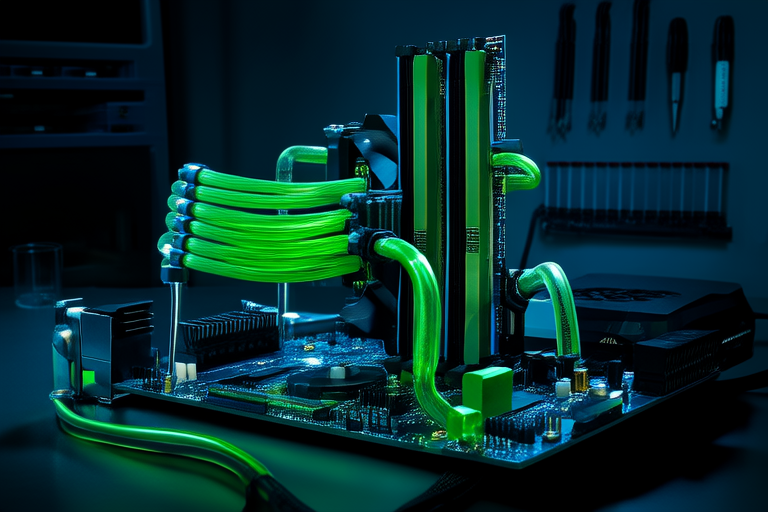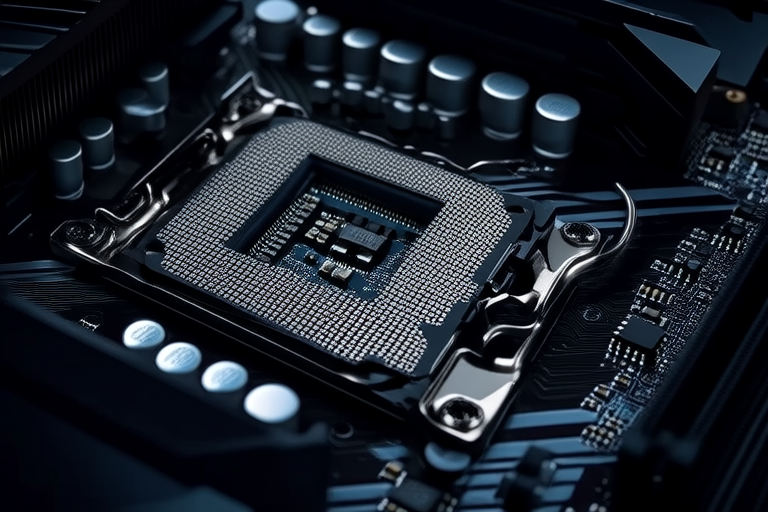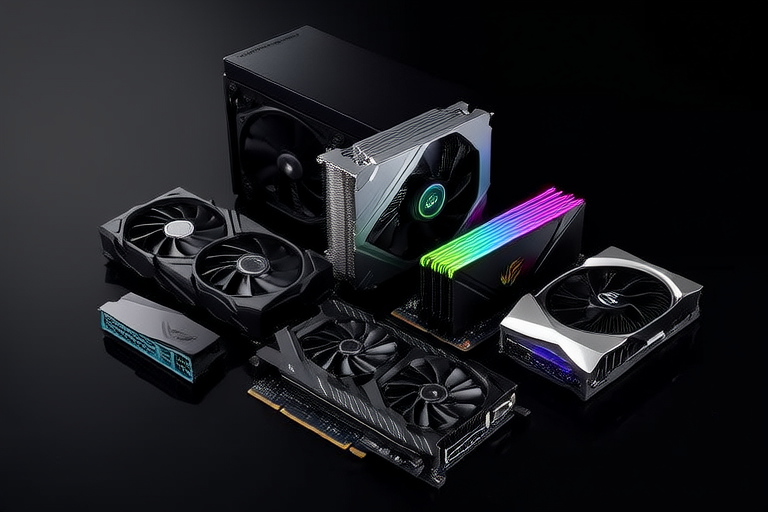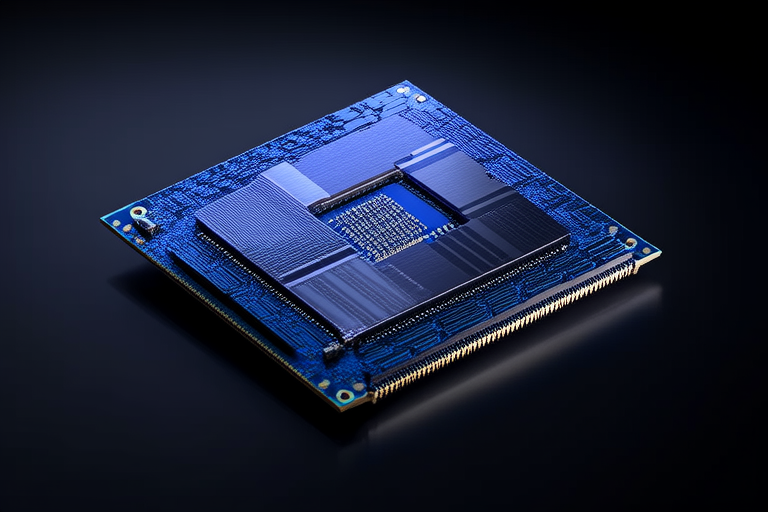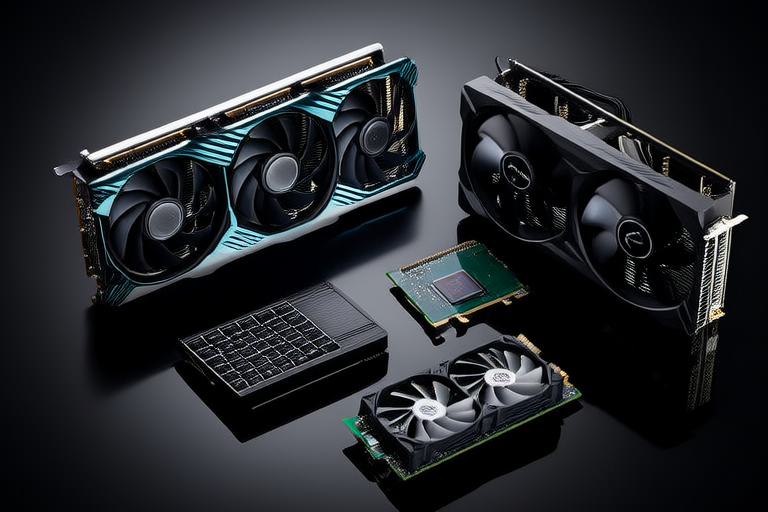“`html
The Role of Advanced Cooling Systems in Modern Computer Hardware
In today’s rapidly evolving technological landscape, the performance and longevity of modern computer hardware heavily depend on effective cooling systems. As processors become more powerful and components increasingly dense, the generation of heat has become a critical issue that demands sophisticated solutions. This article explores the importance of advanced cooling systems in modern computer hardware, highlighting their role in maintaining optimal performance, preventing hardware failures, and ensuring sustainability.
Introduction
Cooling systems are indispensable in modern computing, playing a crucial role in sustaining peak performance and reliability. With the advent of multi-core processors, graphics cards, and other high-performance components, the heat generated during operation has significantly increased. Consequently, the demand for efficient cooling solutions has grown exponentially. This section will introduce the importance of cooling systems and explain how technological advancements have necessitated better cooling methods.
Understanding Heat Dissipation
Heat Dissipation refers to the process of removing heat from a system to prevent overheating. In computing, this is essential for maintaining optimal performance and preventing damage to sensitive components. Insufficient cooling can lead to several issues, including thermal throttling, where the processor reduces its speed to lower temperatures, and hardware failure due to excessive heat. Proper heat dissipation ensures that components operate within safe temperature ranges, thereby enhancing both performance and longevity.
Types of Cooling Systems
Air Cooling
Air cooling is one of the most common methods used in modern computers. It typically involves fans and heatsinks to dissipate heat. Fans come in various designs, such as axial and radial, each offering unique advantages in terms of airflow and noise levels. Heatsinks, often made of aluminum or copper, help conduct heat away from the CPU and GPU, facilitating faster dissipation.
Liquid Cooling
Liquid cooling systems, including closed-loop and open-loop setups, offer superior cooling performance compared to air cooling. Closed-loop systems use pre-filled coolant loops that circulate through the components, while open-loop systems allow users to customize the coolant and pump configuration. These systems are particularly effective for high-performance gaming and professional workstations.
Phase Change Cooling
Phase change cooling utilizes refrigerants that undergo phase changes between liquid and gas to absorb heat. This method provides exceptional cooling capabilities but is generally reserved for extreme overclocking scenarios due to its complexity and cost.
Thermoelectric Cooling
Thermoelectric cooling employs Peltier elements to transfer heat from one side of the device to the other. While effective, it is less commonly used in mainstream consumer hardware due to its relatively low efficiency and higher power consumption.
Each cooling method has its own set of advantages and disadvantages, making it important for users to choose the right solution based on their specific needs and budget.
Advanced Cooling Technologies
Recent advancements in cooling technologies have significantly improved the performance and reliability of modern computer hardware. New materials like graphene and diamond-like carbon have been introduced to enhance heat conduction. Graphene, in particular, offers excellent thermal conductivity and is being integrated into heatsinks and coolers. Additionally, improvements in fan designs, such as liquid-cooled fans and advanced blade configurations, have led to quieter and more efficient cooling solutions.
Thermal pastes have also seen significant advancements, with new formulations providing better heat transfer properties and longer-lasting performance. These innovations collectively contribute to better overall system performance and reliability.
Impact on Performance and Reliability
Advanced cooling systems play a vital role in enhancing the overall performance and reliability of modern computers. Efficient cooling ensures that components operate at optimal temperatures, reducing the risk of thermal throttling and extending the lifespan of critical hardware. By preventing overheating, these systems also contribute to more stable and consistent performance, which is especially important for intensive tasks such as gaming, video editing, and scientific simulations.
Environmental Considerations
The environmental impact of cooling systems is another critical aspect to consider. Energy efficiency and sustainability are becoming increasingly important as the world moves towards greener technologies. Some eco-friendly cooling solutions include the use of renewable energy sources to power fans and pumps, as well as the development of more efficient cooling technologies that minimize energy consumption. Industry trends are also moving towards designing cooling systems that are both effective and environmentally responsible.
Future Trends and Innovations
The future of cooling technology in computing hardware holds exciting possibilities. Emerging trends include the integration of smart sensors and AI-driven algorithms to optimize cooling performance dynamically. Additionally, new materials and designs may further enhance heat dissipation, leading to even more efficient and reliable systems. Potential breakthroughs could revolutionize the way we approach cooling, offering unprecedented performance and longevity for modern computers.
Conclusion
In conclusion, advanced cooling systems are critical to the performance and reliability of modern computer hardware. From traditional air cooling to cutting-edge liquid and phase change solutions, the evolution of cooling technologies continues to push the boundaries of what is possible. As we look to the future, the integration of smarter, more efficient, and sustainable cooling solutions will undoubtedly play a pivotal role in shaping the next generation of computing hardware.
“`
